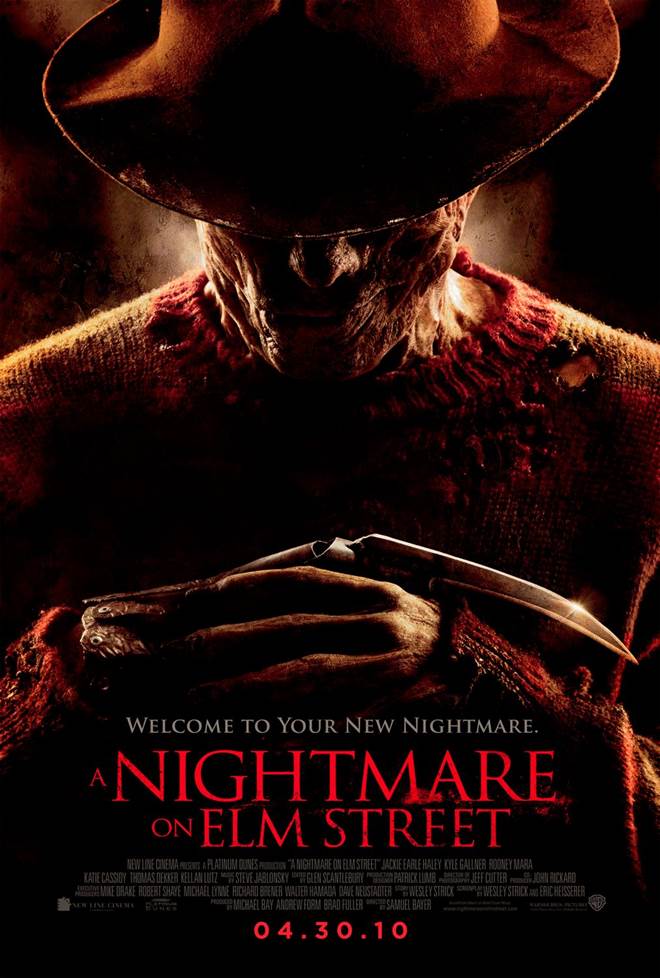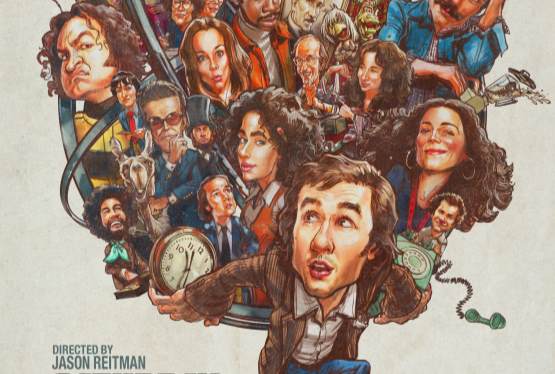I apologize if I am spoiling the surprise for anyone, but I think it's important to be familiar with these facts, long embedded they may be in popular culture, should you choose to see last Friday's remake of horror classic A Nightmare on Elm Street.
For it would be surprising if you didn't know those things. This installment's authors, too, know that they could hardly remake such a film as Wes Craven's original without acknowledging its inspiration. And this it does, though neither dismissively or slavishly, to its great credit.
For me, the terror of Nightmare principally comes from the idea of sleep as the greatest enemy. That it is so simple, yet so difficult, for the would-be victims of Freddy's dreamstalker to avoid death merely by staying awake, evokes the terrors of unconsciousness, temporary and permanent, that we all have deep within our psyches. But this Nightmare loves Freddy Krueger (Jackie Earle Haley, Watchmen), and it shows.
Our new Freddy has a complex agenda, beyond the simple revenge pursued by the original. Nightmare seeks successfully to establish Freddy as the true menace of this version; he is concerned not only with visceral terror, but intellectual terror and straightforward torture. Our new Freddy is, unluckily, not happy to simply kill his victims once he catches them. In one instance this goes so far as to be gratuitous, in a brief, unnecessary scene of torment thankfully not repeated at any other point in the film.
For all of this, Freddy is lavished with screen time that could only be wished for by the original. This required great attention to be paid to his makeup, as well as whether blood ought to appear on his knives at a particular time. These were done competently, as far as I could see; the face flesh was especially believable. Occasionally this extra screen time yielded distractions like a particular menacing display repeated three times, but it served overall the increased complexity of the character.
The nightmare sequences were well constructed, but nothing that you can't expect of any Hollywood film these days. You can still laugh at a couple points, regardless of any advertised increased seriousness, if you like.
The plot, as opposed to Freddy himself, is simplified and straightforward. We don't "waste" any time learning how Freddy works again; a quick "if you die in your dreams, you die for real" serves to catch up anyone unfamiliar with his methods. Clumsy subplots wherein we are expected to briefly sympathize with Freddy, try to draw a parallel with the story of the Pied Piper, and uncover the hidden connection between the protagonists only annoy the viewer or insult her intelligence.
The greatest disappointment of the new Nightmare is its failure to relate the quandary in which the protagonists find themselves with the quandaries of real life, as good horror should. I have no great love for the original Nightmare, and it lacked even the barest subtlety in bloody-minded pursuit of a "parents just don't understand" theme, but dammit, it tried! It's not enough to remind us of our instinctive fears; we have fears and demons to vanquish in everyday life, too.







